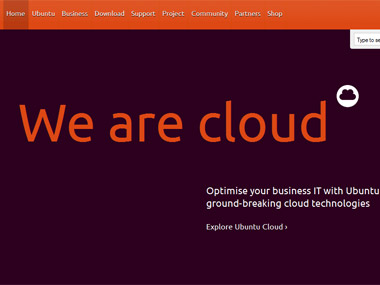For tablets and smartphones, analysts often cast the current market as a battle for number three behind Google’s Android and Apple’s iOS. It’s a crowded field already. Is there room for another player? Open-source operating system Ubuntu hopes so and is looking to expand from its computer roots to tablets, mobile phones and a host of other connected devices by early 2014, according to Mark Shuttleworth, the South African tech entrepreneur behind the Ubuntu project and the commercial company Canonical that supports it. Shuttleworth told ZDNet :
“This is a natural expansion of our idea as Ubuntu as Linux for human beings. As people have moved from desktop to new form factors for computing, it’s important for us to reach out to out community on these platforms. So, we’ll embrace the challenge of how to use Ubuntu on smartphones, tablets and smart-screens.”
Shuttleworth is expected to release more details Monday at a Ubuntu developer conference. [caption id=“attachment_120724” align=“alignleft” width=“380” caption=“Screengrab from Ubuntu website.”]
 [/caption] Fierce competition The first challenge for Ubuntu will be that it will be entering a very crowded, very competitive market. BlackBerry-maker RIM rolling out its next generation OS, BBX, and Microsoft and Nokia pinning their hopes on Windows Phone, not to mention Nokia’s S40 running on a huge number of entry-level. Samsung might have just passed Apple as the world’s largest smartphone maker, largely off the back of the success of its Galaxy line of Android handsets, but as a hedge against the patent issues plaguing Android, Samsung is continuing to develop its own
Bada smartphone operating system
. Shuttleworth thinks that the Google-Motorola deal will keep the door open for another player. In the interview with ZDNet, he said:
[/caption] Fierce competition The first challenge for Ubuntu will be that it will be entering a very crowded, very competitive market. BlackBerry-maker RIM rolling out its next generation OS, BBX, and Microsoft and Nokia pinning their hopes on Windows Phone, not to mention Nokia’s S40 running on a huge number of entry-level. Samsung might have just passed Apple as the world’s largest smartphone maker, largely off the back of the success of its Galaxy line of Android handsets, but as a hedge against the patent issues plaguing Android, Samsung is continuing to develop its own
Bada smartphone operating system
. Shuttleworth thinks that the Google-Motorola deal will keep the door open for another player. In the interview with ZDNet, he said:
“The notion that [the mobile OS status quo] is a done deal has some merit and we don’t have a mobile product today but the level of interest is high … and there is an underlying hunger both in the industry at large and in the open-source, free software world for leadership in this regard.”
Of course, there is already a very popular Linux-based mobile, tablet and embedded operating system, Android, although open-source advocates fiercely challenge how open it is . Android is already moving from mobile phones and tablets to a number of other devices including set-top boxes for home entertainment and in-flight entertainment systems from Thales and Panasonic. Other projects have failed to gain traction such as Nokia and Intel’s Meego open-source platform , which was delivered dead on arrival despite the well received N9. Shuttleworth thinks that the problem isn’t open-source development but the problems posed by consortia. He told ZDNet , “Consortiums can’t win. They can’t take a forceful, direct view with their products.” Intel hasn’t given up just yet, and quickly moved from Meego to Tizen along with Samsung and the Linux Foundation The waiting game Here is the wrinkle, Shuttleworth sees the effort as a long game. Ubuntu ubiquity will only come after Canonical has knocked the Ubuntu and just as importantly its new desktop interface Unity into shape. Don’t look for Ubuntu to move from computers to smartphones, tablets and connected devices until Canonical has refined the operating system for its next long-term support update to be released April 2012. Ubuntu issues new releases every six months, but it also releases what it calls long-term support releases for its desktop every three years. It provides a more stable platform for people who value stability over having the latest and greatest updates. Canonical is already in talks with hardware makers about bringing Ubuntu to smart TVs, tablets and mobile phones in early 2014. That’s an eternity in terms of consumer technology, but it makes a lot of sense in development terms. Ubuntu also has a headstart over Microsoft in developing for mobile-friendly ARM chips. However, it might spare Ubuntu the bloody mobile battle of the next few years. The mobile platform market will definitely consolidate, but what we’ve seen with the mobile market is that it is a lot more volatile than the relatively stable desktop market. Dominant players can quickly find themselves struggling against new entrants. Motorola, BlackBerry and Nokia can all attest to that.
)